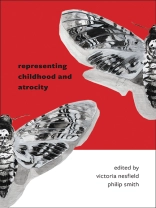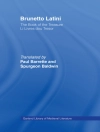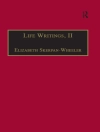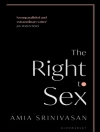Examines the ways in which writers and artists have attempted to address children’s experience of atrocity.
Atrocity presents a problem to the writer of children’s literature. To represent events of such terrible magnitude and impersonal will as the Holocaust, the transatlantic slave trade, or the Rwandan genocide such that they fit into a three-act structure with a comprehensible moral and a happy ending is to do a disservice to the victims. Yet to confront children with the fact of widescale violence without resolution is to confront them with realities that may be emotionally disturbing and even damaging. Despite these challenges, however, there exists a considerable body of work for and about children that addresses atrocity. To examine the ways in which writers and artists have attempted to address children’s experience of atrocity, this collection brings together original essays by an international group of scholars working in the fields of child studies, children’s literature, comics studies, education, English literature, and Holocaust, genocide, and memory studies. It covers a broad geographical range and includes works by established authors and emerging voices.
Зміст
List of Illustrations
Introduction
Victoria Nesfield and Philip Smith
Part 1: Late Twentieth-Century Genocides
1. Children’s Humanitarian Arts and the Genocide in Darfur: Drawing Loss and Atrocity
Chigbo Arthur Anyaduba
2. Framing the Unframeable: Deogratias and the Horror of Genocide
Kaitlyn Newman
3. Tracing Trauma: Childhood, Innocence and Memory in Cypriot Children’s Literature since 1974
Maria Chatzianastasi
Part 2: The Holocaust
4. Beyond the Ovens: The Changing Nature of Holocaust Children’s Literature
Barbara Krasner
5. Gendered Behavior in Uri Orlev’s and Kathy Kacer’s Literature about the Holocaust for Children
Rosemary Horowitz
6. A Sonnet of Atrocity: A Consideration of a Poem Written by a Child at the Terezín Concentration Camp
Mary Catherine Mueller
3: Dictatorships
7. Communism for Children: Fiction Mediation and Representations of Past Wrongdoings
Simona Mitroiu
8. The Uses of Allegory to Tell Youth Disappearance and Mortality under Spain’s Dictatorship in Ana María Matute’s 1956 Los niños tontos (The Foolish Children)
Lora L. Looney
9. Confronting Atrocity Through Geometry: Franco’s First Illustrated Biography
María Porras Sánchez
Part 4: Institutions and Domestic Structures
10. Picture Books and Parrhesia: Canadian Residential Schools and Answering the TRC’s Calls to Action
Caroline Bagelman
11. Hidden Atrocities in Cinematic Representations of Chinese Girlhoods
Chengcheng You
12. Nursery Atrocities: The Australian Children’s Classic The Magic Pudding
Jayson Althofer and Brian Musgrove
13. Freedom in Fiction: Trickster Tales and Enslavement in the United States
Megan Jeffreys
Contributors
Index
Про автора
Victoria Nesfield is Lecturer in Religion at York St John University in England. Philip Smith is Associate Chair and Professor of English at Savannah College of Art and Design. Together they are the coeditors of The Struggle for Understanding: Elie Wiesel’s Literary Works, also published by SUNY Press.












